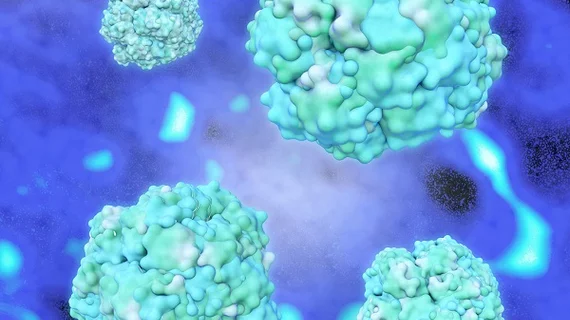Prostate cancer grading and quantification is significantly more accurate with AI-assisted platform
New research published Wednesday in the Journal of the American Medical Association hails the accuracy of a new AI-assisted platform that helps pathologists grade and quantify prostate cancer.
When it comes to prostate cancer, interobserver agreement regarding grading and quantification can vary greatly. With this in mind, researchers developed an artificial intelligence platform meant to assist pathologists in overcoming these limitations.
“None of the AI systems and algorithms used in previous studies have been validated by independent pathologists or examined for their potential impact with regard to pathologists’ clinical practice,” Wei Huang, MD with the Department of Pathology and Laboratory Medicine, and School of Medicine and Public Health at the University of Wisconsin–Madison, and co-authors wrote.
For their research, 1,000 whole-slide images from the biopsy specimens of 589 men with confirmed prostate cancer were analyzed. Three academic urologic pathologists examined the slides manually and then again using the AI-assisted platform.
At the patch-pixel level, the AI system was able to differentiate between prostate cancer and benign prostatic epithelium and stroma with high accuracy; and nearly perfect concurrence was noted between the AI system and the training pathologist at the slide level. When the pathologists took advantage of AI assistance, significant enhancements were observed in both grading and quantification accuracy (90.1% with AI vs. 84% manual).
“The AI-assisted method was associated with improvements in pathologists’ clinical practice and diagnostic outcomes, which in turn could have substantial implications for risk stratification and clinical management of patients with prostate cancer,” the authors noted.
You can read the full report in JAMA Network Open.

